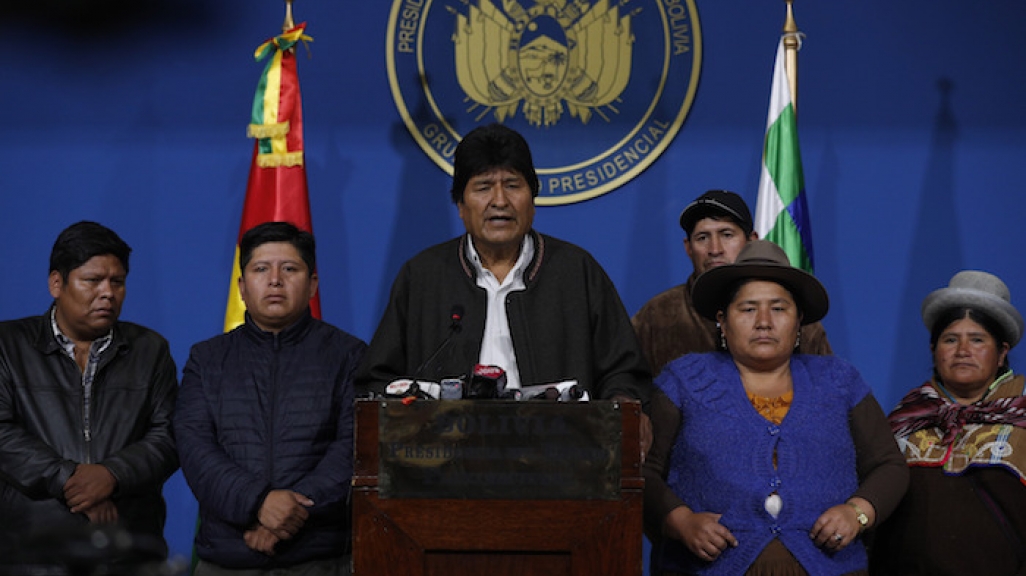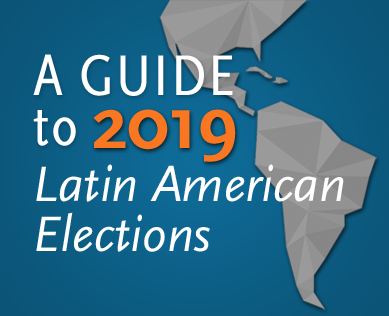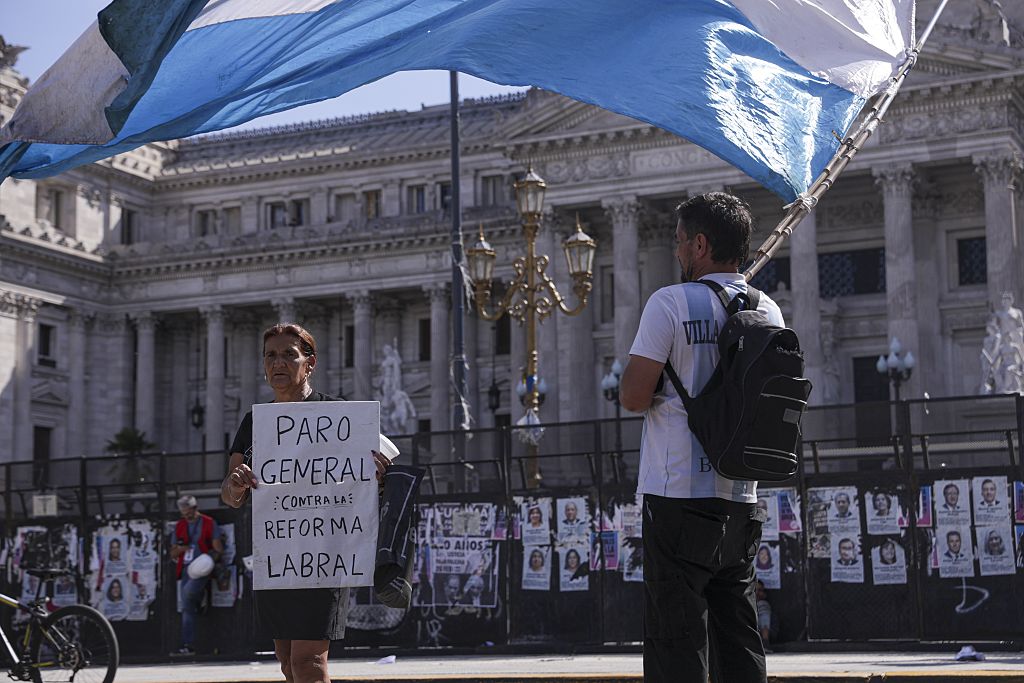Timeline: Evo Morales Resigns from the Bolivian Presidency
Timeline: Evo Morales Resigns from the Bolivian Presidency
Latin America’s longest continuously serving president stepped down November 10. AS/COA Online tracks events from election day through Morales’ resignation.
Updated November 12, 2019—After weeks of protests and turmoil sparked by a controversial electoral process that gave him a fourth term in office, Evo Morales, Latin America’s longest continuously serving president, resigned on November 10. While Bolivians voted in a 2016 referendum against him seeking another term, a 2017 court decision paved the way for him to run again anyway. The October 20 election results, which the OAS reported as marred with irregularities, gave him a small margin to avoid a runoff against ex-President Carlos Mesa. While Morales’ current term was slated to conclude in January, what comes next is unclear as of the time of this report.
How did Bolivia get to this point? AS/COA Online tracks events from election day through Morales’ resignation.
October 20: The first round of Bolivia’s presidential election takes place. In order to avoid a runoff, a candidate needed to win either more than 50 percent of the vote or a minimum of 40 percent with more than a 10-point lead over the top rival. In the evening, a preliminary rapid count based on 83.8 percent of votes shows Evo Morales leading with 45.3 percent against Mesa’s 38.2 percent. If the results held, that would have meant Bolivia’s first second-round vote since the runoff measure was introduced via the 2009 Constitution. Polls ahead of the vote gave Morales a healthy lead but left his chances of winning a runoff—slated for December—in doubt.
At roughly 8 p.m. local time, the vote count freezes.
October 21: Nearly a full day after preliminary counts stall, the website of Bolivia’s electoral agency begins to pick up the tally again, showing Morales surging ahead toward the 10-point difference needed to avoid the second round. The Organization of American States expresses concern over the new results, describing the shift as a “drastic and inexplicable” change and calling for respect for the “will of the citizens.” Protests break out across the country.
October 22: The vice president of Bolivia’s supreme electoral tribunal steps down over the suspension of the voter count, saying it resulted in the “discrediting of the entire electoral process.”
October 23: Morales says a coup attempt is in the making against him, with the opposition backed by international actors. Meanwhile, the OAS recommends that, given the vote controversy, a runoff should be held regardless of the first round’s outcome.
October 24: The electoral agency releases the results of nearly a full count that, with 99.74 percent of votes tallied, gives Morales 47.05 percent to Mesa’s 36.53 percent.
The president declares himself the winner of a fourth consecutive term. Mesa refused to concede. The European Union joins the OAS in urging a second round. Argentina, Brazil, Colombia, and the United States issue a joint communication doing the same. Other countries—including Cuba, Venezuela, and Mexico—back Morales’ victory.
October 25: With the final tally of all votes showing that Morales got 10.56 percent—or just over half a point needed to stave off a second round—more than Mesa, Bolivia’s electoral tribunal declares Morales the winner. UN Security-General Antonio Guterres backs an OAS election audit, which Morales the next day says he would accept. Protests continue.
October 31: The OAS audit of the election begins the day after two protesters die and six more are injured in the western province of Santa Cruz.
November 4: A helicopter in which Morales is traveling makes an emergency landing, sparking accusations of an attack or coup attempt amid ongoing tensions and demonstrations, and with a student protester killed in the city of Cochabamba the following day.
November 7: Luis Fernando Camacho, a conservative protest leader from Santa Cruz who has emerged as a strong critic of Morales and his party MAS, arrives in La Paz as he planned to personally deliver a resignation letter for the president to sign. A mayor from Morales’ MAS party in the town of Vinto is attacked by protesters who say she bussed in government supporters.
November 9: After news of police mutinies in Bolivian cities Cochabamba, Santa Cruz, and Sucre start to emerge on November 8, police forces in other cities—including the capital of La Paz—did the same. The pressure increased on the Morales government when the military follows suit and says it will not confront protesters.
November 10: The OAS releases its preliminary findings of the election audit, saying it could not verify results, and found evidence of irregularities and manipulations of the voting system, viewing it as statistically unlikely that Morales had secured the 10-point difference with Mesa. In the morning, Morales said he would call new elections with a reformed electoral body. But by the afternoon, the head of the military, General Williams Kaliman, called on Morales to resign to restore peace.
Around 5 p.m. local time, Morales resigned, describing the events as a coup. His vice president, Álvaro García Linera, and several other officials stepped down as well, leaving it unclear who would hold the presidential seat.
On Sunday night, Mexico’s Foreign Minister Marcelo Ebrard tweeted that his country had already received 20 members of Bolivia’s executive and legislative branches and offered asylum to Morales as well. As of the time of this report on Sunday, Morales said he did not plan to leave Bolivia.
November 11: In the daily press conference held by Mexican President Andrés Manuel López Obrador, Ebrard describes the events in Bolivia as a coup and says he’s calling for an emergency OAS meeting on the situation. In the afternoon, he announces that Morales had accepted Mexico’s asylum offer and that he would inform the UN in order to ensure international protection for Bolivia’s now former president.
U.S. President Donald Trump releases a statement applauding Morales’ resignation and saying it sends “a strong signal to the illegitimate regimes in Venezuela and Nicaragua.”
While fears of a power vacuum continue in Bolivia, a possible interim leader emerged: opposition leader Jeanine Áñez who, as the vice president of the Senate, could ascend to head that chamber and become next in line for the presidency.
November 12: Morales arrives in Mexico City, and promised to "continue the struggle." Ebrard said that his government's decision continues a long Mexican history of providing political asylum. Añez declares herself interim president after Morales' legislative supporters boycotted the session appointing her to the role, meaning there was no quorum. She has called for new elections.









